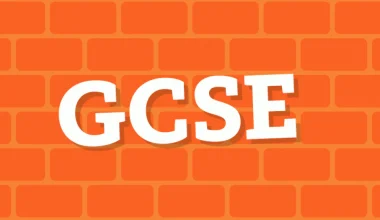Stepping into the GCSE to A-Level transition in 2023 is like embarking on a thrilling adventure, but it comes with its own unique set of challenges.
The statistics speak volumes: over half a million students across the United Kingdom are gearing up for this transformative phase in their academic journey.
In this article, we’ll provide essential guidance and ensure that you’re well-prepared for this crucial step in your education.

Table of contents
- What is the GCSE to A-Level Transition?
- What Are the Key Differences Between GCSE and A-Level?
- What are the Requirements for A-Levels?
- How Can I Choose the Right A-Level Subjects?
- What Study Techniques Are Effective for A-Levels?
- How Do I Manage the Increased Workload?
- What Support Resources Are Available?
- How Will A-Levels Impact My University Admission?
- FAQs
- Conclusion
- References
- Recommendations
What is the GCSE to A-Level Transition?
The GCSE to A-Level transition signifies a significant shift in your educational journey. At this juncture, you’ll transition from the General Certificate of Secondary Education (GCSE) to the more advanced realm of Advanced Level (A-Level) qualifications.
A-Levels are the next step in your academic ladder, providing a deeper dive into specific subjects. Unlike GCSEs, where you get a broad overview of subjects, A-Levels demand a more focused approach.
A-Levels are all about specialization. You’ll pick fewer subjects compared to GCSEs, allowing you to explore topics in greater detail. It’s like zooming in with a microscope on subjects that genuinely interest you.
This specialization not only nurtures your passion but also equips you with in-depth knowledge and advanced skills.
Transitioning to A-Levels is akin to shifting gears. The pace intensifies, requiring more independent study, critical thinking, and research skills. You’ll find yourself grappling with thought-provoking concepts and complex problem-solving. It’s a challenge, but one that can be immensely rewarding as you delve deeper into your chosen subjects, paving the way for future academic and career opportunities.
In essence, the GCSE to A-Level transition is your ticket to a more specialized, intellectually stimulating phase of education.
See also: Sixth Form Explained: from GCSEs to A-levels in 2023
What Are the Key Differences Between GCSE and A-Level?
The transition from GCSE to A-Level marks a substantial leap in your academic journey. Understanding the key differences between these two stages is essential to thrive in the advanced level of education.
Firstly, at the GCSE level, you encounter a broad range of subjects, providing a general foundation. In contrast, A-Levels are all about specialization. You choose a more limited set of subjects to study in depth.
Secondly, while GCSEs are known for their structured curriculum, A-Levels offer greater flexibility. You’ll have more say in crafting your educational path, and selecting subjects that align with your interests and career aspirations.
Furthermore, the workload increases significantly at the A-Level stage. Expect more homework, assignments, and independent study. You’ll dive deeper into complex topics, honing your critical thinking and analytical skills.
Additionally, GCSE exams often emphasize memorization, whereas A-Levels focus on understanding concepts and applying knowledge. You’ll engage in more critical analysis and problem-solving, preparing you for higher education and beyond.
Lastly, A-Levels provide a more challenging academic environment. You’ll be surrounded by peers who are equally passionate about their subjects, fostering an intellectually stimulating atmosphere.
In essence, the transition from GCSE to A-Level involves a shift from generalization to specialization, increased flexibility, a heavier workload, a focus on understanding over memorization, and a more challenging academic environment. Understanding these differences will help you navigate this crucial educational transition successfully.
See also: Do Universities Look at Your GCSE and A-Level Attendance?
What are the Requirements for A-Levels?
To embark on your A-Level journey, you’ll need to meet specific requirements that vary depending on your chosen school or college. These prerequisites are typically straightforward and designed to ensure you’re adequately prepared for the academic challenges that A-Levels entail.
Firstly, most schools or colleges will require you to have completed your GCSEs or an equivalent qualification. This is the foundational step towards A-Levels.
Next, you’ll need to choose the A-Level subjects you wish to study. These choices can significantly impact your future academic and career path, so consider them carefully. Usually, your school or college will have guidelines on the number of subjects you should take.
Furthermore, some institutions may have specific subject requirements. For example, if you’re interested in pursuing A-Level Mathematics, you might need to have achieved a certain grade in GCSE Mathematics to qualify.
Additionally, it’s essential to meet the entry requirements of your chosen school or college. These requirements can include a minimum number of GCSE passes, specific grades in particular subjects, or even an interview.
In essence, the requirements for A-Levels primarily involve completing your GCSEs, choosing your A-Level subjects, and meeting the entry criteria of your educational institution. By ensuring you meet these prerequisites, you can confidently step into the world of A-Levels and work towards your academic goals.
See also: How to Receive Extra Time For GCSE, A-Level and University Exams
How Can I Choose the Right A-Level Subjects?
Choosing the right A-Level subjects is a pivotal decision in your academic journey. It’s a bit like crafting a personalized roadmap for your future, and here’s how to do it effectively.
Firstly, think about your interests. What subjects genuinely captivate your curiosity? Consider what you enjoy studying the most. A-Levels demand a higher level of engagement, so selecting subjects you’re passionate about is key to staying motivated.
Additionally, contemplate your career aspirations. Do some research on the university courses or careers you’re interested in. Identify the A-Level subjects that are prerequisites or highly beneficial for those paths. This will help ensure your A-Levels align with your long-term goals.
Moreover, seek advice from teachers, career counselors, and peers. They can offer valuable insights based on their experiences and knowledge of your strengths and weaknesses. Don’t hesitate to ask questions and gather as much information as possible.
Furthermore, consider your own strengths and weaknesses. Reflect on the subjects where you excel and those where you may need more support. A balanced selection of subjects that play to your strengths while challenging you can be a winning strategy.
See also: How to Get an A* in A-Level Maths ( Ultimate Guide)
What Study Techniques Are Effective for A-Levels?
Effective study techniques are the cornerstone of success when it comes to A-Levels. Here are some straightforward strategies to help you excel:
- Create a Study Schedule: Planning your study time is crucial. A well-structured schedule ensures you allocate sufficient time to each subject and avoids last-minute cramming.
- Set Clear Goals: Define specific, achievable goals for each study session. Having clear objectives helps you stay focused and motivated.
- Take Thorough Notes: During class or while studying, take organized and concise notes. This helps you understand and retain information better.
- Active Learning: Engage actively with the material. Instead of passively reading, try summarizing, discussing, or teaching the topic to someone else.
- Use Online Resources: Take advantage of online tools, educational websites, and digital resources. They can provide additional explanations and practice exercises.
- Past Papers: Practice with past exam papers. This familiarizes you with the exam format and helps you identify areas where you need improvement.
- Study Groups: Join or create study groups with classmates. Collaborative learning can offer new perspectives and enhance your understanding of complex topics.
- Seek Help When Needed: Don’t hesitate to ask teachers or peers for clarification on challenging concepts. It’s a sign of strength, not weakness.
- Avoid Procrastination: Fight the urge to procrastinate by breaking your study time into manageable chunks. Set short breaks to recharge.
- Stay Organized: Keep your study materials well-organized, including notes, textbooks, and reference materials. This saves time and minimizes stress.
See also: When Should You Start Revising For Your A-Levels Exam?
How Do I Manage the Increased Workload?
Managing the increased workload that comes with A-Levels can be a challenge, but with the right strategies, you can stay on top of your studies without feeling overwhelmed.
- Prioritize Your Tasks: Start by identifying the most important and urgent tasks. Create a to-do list and tackle high-priority items first.
- Create a Study Schedule: Establish a well-structured study schedule that allocates dedicated time for each subject. Consistency is key to managing your workload effectively.
- Break It Down: Divide large tasks into smaller, manageable chunks. This approach makes complex subjects feel less daunting and allows for gradual progress.
- Time Management: Avoid procrastination by setting time limits for each study session. Stick to your schedule and use timers to stay disciplined.
- Avoid Overloading: Be cautious not to take on too much at once. Know your limits and don’t hesitate to drop extracurricular activities or adjust your schedule if you find yourself overwhelmed.
- Stay Organized: Keep your study materials and notes well-organized. This saves precious time and minimizes stress when you’re searching for specific information.
- Balance Your Life: While academics are important, remember to maintain a balance. Make time for relaxation, hobbies, and socializing to prevent burnout.
- Seek Help: If you’re struggling to manage your workload, don’t be afraid to reach out to teachers or mentors for guidance. They can provide valuable advice and support.
- Use Technology: Utilize productivity apps and digital tools to help you stay organized and manage your time more efficiently.
See also: What Are GCSE Mocks Exam? Your Ultimate Guide For GCSE and A-Level
What Support Resources Are Available?
Accessing support resources during your A-Level journey is essential for success. Here’s a look at some of the available resources:
- Teachers: Your A-Level teachers are your first line of support. They provide guidance, clarify doubts, and offer valuable insights into the subjects they teach. Don’t hesitate to ask questions.
- Tutors: If you’re struggling with specific subjects or topics, consider getting a tutor. They can provide one-on-one assistance and help you grasp challenging concepts.
- Study Groups: Join or form study groups with classmates. Collaborating with peers can provide different perspectives and enhance your understanding of complex subjects.
- Online Forums: Explore online forums and communities dedicated to A-Level subjects. These platforms often have discussions, study materials, and expert advice.
- Educational Websites: Utilize educational websites and resources tailored to A-Level subjects. They can offer explanations, practice questions, and study guides.
- Libraries: Your school or local library is a treasure trove of academic resources. It’s an excellent place to access textbooks, reference materials, and a quiet study environment.
- Past Papers: Past exam papers are invaluable for practice. They give you a sense of the exam format and help you identify areas where you need improvement.
- Counseling Services: Many schools offer counseling services to support your overall well-being. If you’re feeling overwhelmed or stressed, don’t hesitate to seek help.
- Online Courses: Consider enrolling in online courses or tutorials that align with your A-Level subjects. They can provide additional instruction and practice.
See also: How To Prepare Properly For A-Levels After GCSEs
How Will A-Levels Impact My University Admission?
Your A-Level performance can significantly influence your university admission prospects. Universities generally consider your A-Level results as a primary factor in their admission decisions.
- Here’s how A-Levels can impact your path to higher education:
Entry Requirements: Many universities have specific A-Level grade requirements for their programs. Meeting or exceeding these requirements can increase your chances of being accepted.
- Subject Relevance: The A-Level subjects you choose should align with your desired university course. Relevant subjects demonstrate your readiness and interest in your chosen field.
- Competitive Edge: A strong performance in your A-Levels can give you a competitive edge over other applicants. Higher grades can set you apart and make your application more attractive.
- Conditional Offers: Some universities may extend conditional offers based on predicted A-Level grades. Meeting these conditions ensures your place in the program.
- Course Eligibility: Certain courses may have specific subject prerequisites. Meeting these prerequisites with your A-Level choices is essential for eligibility.
- Scholarships: Exceptional A-Level performance can also open doors to scholarships and financial aid, making your university education more affordable.
- University Reputation: Top-tier universities may have more stringent A-Level requirements. Strong A-Level results can help you gain access to prestigious institutions.
See also: Do Universities Prefer IGCSEs or GCSEs?
FAQs
The jump depends on the subject. For example with Chemistry, the jump is huge. With Maths though, it wasn’t as bad. The thing with A levels is that you need to spend some time outside lessons consolidating what you’ve already learned.
Overall, students should aim to revise for a lot longer than two months just to ensure that they’re putting themselves in the best position possible for the exam. It is possible to revise A levels in two months, although this could be a risk and could depend on the capability of individuals.
Conclusion
The GCSE to A-Level transition in 2023 is a pivotal moment in your education.
By understanding the differences, choosing the right subjects, and adopting effective study habits, you can navigate this transition successfully.
Remember that support is available, and with determination, you can achieve your academic and career aspirations.
References
- Greenhouselearning.co.uk – Navigating the Transition from GCSE to A-Level Studies: A Comprehensive Guide
- Educationblog.oup.com – Stepping up: 6 ways to manage the transition from International GCSE to International A-level
Recommendations
- Is Chemistry A Level Hard? How Hard is A-Level Chemistry? (Compared To GCSE)What Are GCSE Mock Exams? Your Ultimate Guide for GCSE and A-Level
- What is General Studies at the A-Level? Your Complete GCSE and A-Level Guide
- Can You Take A-Levels Privately? A Complete Guide
- Is English GCSE Hard? How Hard is English GCSE?
- Are A-Levels Further Education? Why Study A-Levels at a Further Education College?
- How to Sit For GCSE Exams Privately: The Extensive Guide
- Minimum Age to Take GCSE: Can You Take Your GCSEs Early?
- How Many GCSEs Do You Need For University? | 2023






